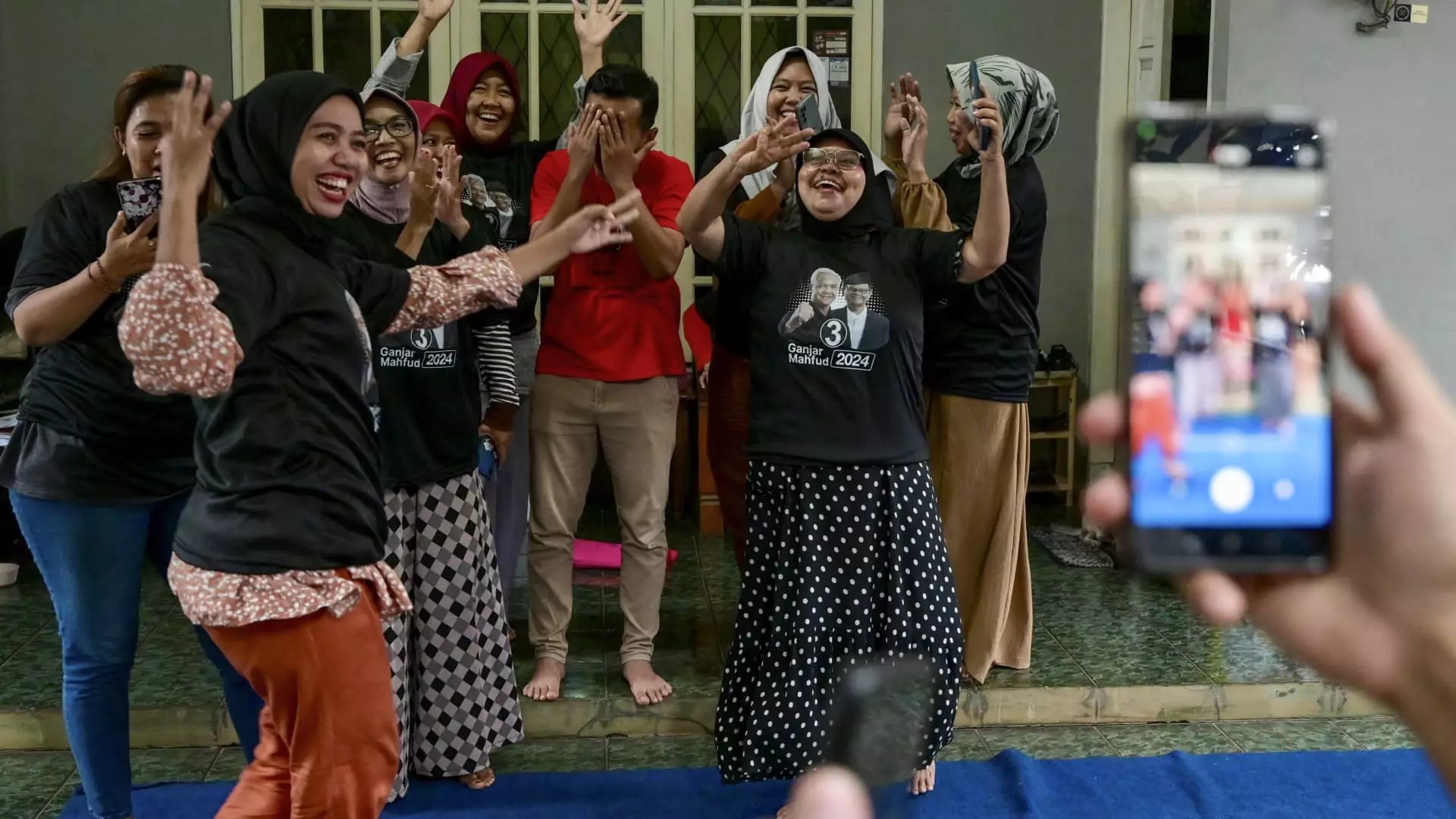As the highly-anticipated February 14 election approaches in Indonesia, the country’s presidential candidates are vying for the attention and support of voters on social media platforms. With 56.5% of the electorate consisting of millennials and Gen Z, the use of social media for political campaigning has skyrocketed. Among the various platforms, TikTok, with its 125 million monthly active users, has emerged as a key battleground for the candidates. TikTok’s popularity in Indonesia, its second biggest market, presents a unique opportunity for candidates to reach and engage with voters.
Defense Minister Prabowo Subianto, the frontrunner in the polls, has adopted a different approach in his TikTok campaign compared to his previous runs for presidency. Instead of projecting a macho image, Prabowo has embraced a “gemoy,” or cute, image to appeal to young voters. His popular TikTok content showcases his sensitive and vulnerable side, such as a video in which he appeared on the verge of tears after tough questioning in a presidential debate. This emotional display resonated with many supporters, particularly young women, who created videos of themselves expressing solidarity with Prabowo. The strategy seems to humanize Prabowo and garner support from a wide range of demographics.
Anies Baswedan’s K-Pop Connection
Anies Baswedan, the former governor of Jakarta, has found unexpected popularity among K-pop fans on TikTok. Despite past associations with conservative Islam, Anies has cultivated a following among young women who appreciate his live broadcasts and interact directly with him through questions on a variety of topics. One notable supporter is a 22-year-old female student who posts content about Anies and his campaign using Korean hangul captions. The unique connection between Anies and K-pop fans showcases his ability to appeal to diverse interests and break stereotypes.
Ganjar Pranowo, the former governor of Central Java, has taken a more down-to-earth approach on TikTok to showcase his humble roots. Rather than relying on gimmicks or flashy content, his campaign team focuses on capturing unpolished moments of Ganjar interacting naturally with voters on the ground. This authentic portrayal aligns with TikTok’s algorithm, which values originality and authenticity in videos. While Ganjar’s campaign may lack the viral appeal of his competitors, it aims to establish a genuine connection with voters and highlight his commitment to grassroots engagement.
The Challenges of TikTok Campaigning
TikTok’s rising popularity as a political campaigning platform is not without challenges. Misinformation has been a pervasive issue on social media during Indonesian elections, and TikTok is no exception. The short video format of TikTok makes it susceptible to edited clips and misleading captions. The platform has responded by banning paid political advertising and fundraising by politicians and parties. Additionally, TikTok has partnered with government bodies, local NGOs, and news agency Agence-France Presse to combat misinformation and limit its influence on the platform. However, as the use of TikTok for political purposes grows, the platform must remain vigilant and proactive in addressing the spread of false information.
TikTok’s Impact on Indonesian Politics
While TikTok’s role in Indonesia’s presidential election is relatively new compared to other social media platforms like YouTube and Facebook, it has quickly gained momentum. According to Mafindo, an NGO working with TikTok, a significant increase in hoaxes and disinformation has been observed on the platform. As TikTok continues to attract more users and political campaigns intensify, the platform’s impact on Indonesian politics is expected to grow. Its unique features, such as authentic and unpolished content, present an opportunity for candidates to connect with voters in a more personal and engaging way.
TikTok has become a central battleground in Indonesia’s presidential election, with candidates strategically using the platform to reach and mobilize young voters. The gemoy approach of Prabowo, Anies’ unexpected popularity among K-pop fans, and Ganjar’s focus on authenticity all reflect the candidates’ understanding of TikTok’s unique characteristics. As TikTok’s popularity continues to rise, ensuring the platform remains free of misinformation and serves as a tool for genuine political discourse will be crucial. The impact of TikTok on Indonesian politics is undeniable, and its influence is likely to shape future campaign strategies and communication with voters.

Leave a Reply